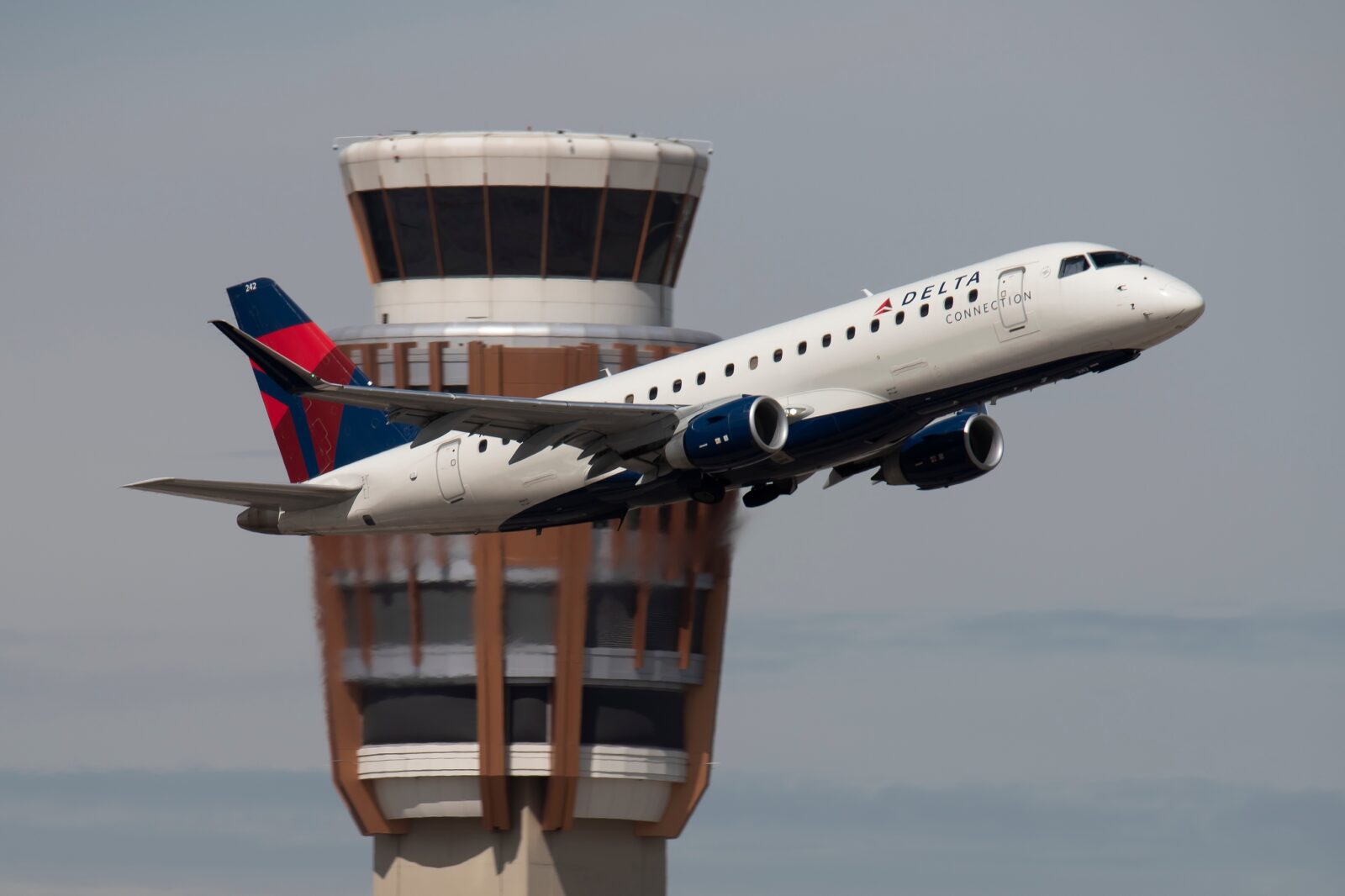
The Biden administration is introducing new consumer protection rules that will force airlines to provide automatic cash refunds to passengers affected by delayed or canceled flights, as well as for lost or delayed baggage.
Until now, airlines were allowed to make up their own rules for when passengers were entitled to a refund due to a ‘significant change’ to their itinerary, resulting in wildly differing rights for passengers depending on which airline they chose to fly with.
Under the final rule issued by the Department of Transportation (DOT) on Wednesday, there is now a universal definition of what ‘significant change’ means for both flights as well as delayed baggage.
Passengers will now be entitled to a full cash refund due to a ‘significant change’, which results in them choosing not to take the flight or accept travel vouchers. The rules apply to cancelled flights, as well as if the departure or arrival time of their flight is significantly changed by three hours for a domestic flight and six hours for an international flight.
Significant changes also include:
- A change to an itinerary in which a passenger is rerouted to or from a different airport than they booked
- The number of connections required to get to their final destination is increased from what they booked
- Passengers are downgraded to a lower class of service
For passengers with disabilities, the right to a refund will also include circumstances where an airline changes the airplane to one which is less accessible than the passenger booked to fly on.
Passengers will be entitled to a cash refund on any baggage fees they’ve paid if their bag fails to turn up within 12 hours for a domestic flight and between 15-30 hours for international flights for an international flight.
In addition, passengers will also be able to claim back fees for inflight Wi-Fi, seat selection and inflight entertainment if an airline fails to provide these services.
Airlines will be required to automatically issue refunds without passengers needing to ‘jump through hoops’ within seven business days for purchases made with a credit card. Other purchase methods must be refunded within 20 calendar days.
Any refund amount must include taxes and fees and airline-imposed fees and must be made in the same form as the flight or service was paid for. For example, if a passenger has booked a flight using frequent flyer miles, the full amount of frequent flyer miles must be refunded.
“Passengers deserve to get their money back when an airline owes them – without headaches or haggling,” commented Transportation Secretary Pete Buttigieg as the final rule was announced on Wednesday.
“Our new rule sets a new standard to require airlines to promptly provide cash refunds to their passengers,” Buttigieg continued.
The final rule also includes protections for passengers who are advised not to travel due to a ‘serious communicable disease’, which will now require airlines to offer affected customers travel credits or vouchers.
The addition of this rule was prompted by the way that many airlines reacted during the pandemic, with consumer complaints spiking due to the failure of many carriers to issue refunds in a timely manner.
Mateusz Maszczynski honed his skills as an international flight attendant at the most prominent airline in the Middle East and has been flying ever since... most recently for a well known European airline. Matt is passionate about the aviation industry and has become an expert in passenger experience and human-centric stories. Always keeping an ear close to the ground, Matt's industry insights, analysis and news coverage is frequently relied upon by some of the biggest names in journalism.








This is a political/election year gambit.
The administration/US DOT is almost certainly aware that this action exceeds the limits of the authority delegated to it by Congress when it comes to the ability to promulgate administrative rules (this is an admin rule of the DOT). An action of this kind would likely require legislative action by Congress in order to withstand judicial scrutiny. That’s the legal end of this.
Still, on the political side, it makes the admin appear to be on the side of “the people” (and if so, why did it wait until the tail end of its 4 year term to do this?), and airlines may be hesitant to challenge the rule despite valid legal arguments due to the “optics” of publicly opposing it in court. My bet is it will be challenged and set aside, but the current administration still scores its political points either way, which was the point all along.